e-SPACE Heart Failure 2023
Published: 25 October 2023
-
Views:
 3135
3135
-
Likes:
 7
7
-
Views:
 3135
3135
-
Likes:
 7
7
-
 Up Next
Up Next -
 1h 2m 8sPart 2 | Session 8 Plenary session 10 – Special Populations
1h 2m 8sPart 2 | Session 8 Plenary session 10 – Special Populations
-
 1h 54sPart 1 | Session 1 Plenary session 1 – Recent guideline updates in HF Ahmed Bennis, Frieder Braunschweig, Marco Metra, Alicia Chan, Ovidiu Chioncel, Stefan Anker
1h 54sPart 1 | Session 1 Plenary session 1 – Recent guideline updates in HF Ahmed Bennis, Frieder Braunschweig, Marco Metra, Alicia Chan, Ovidiu Chioncel, Stefan Anker
-
 41m 37sPart 1 | Session 2 Meet the expert – Iron Deficiency & IV Iron – The 2023 ESC HF Guidelines and Recent Trial Results: Interpretation & Implementation (Supported by an unrestricted educational grant from Pharmacosmos) Patricia Campbell, Paul Kalra, Robert Mentz
41m 37sPart 1 | Session 2 Meet the expert – Iron Deficiency & IV Iron – The 2023 ESC HF Guidelines and Recent Trial Results: Interpretation & Implementation (Supported by an unrestricted educational grant from Pharmacosmos) Patricia Campbell, Paul Kalra, Robert Mentz
-
 1h 8m 32sPart 1 | Session 3 Plenary session 2 – GDMT in the clinical setting Michael Böhm, Frieder Braunschweig, John JV McMurray, Gianluigi Savarese, Marianna Adamo
1h 8m 32sPart 1 | Session 3 Plenary session 2 – GDMT in the clinical setting Michael Böhm, Frieder Braunschweig, John JV McMurray, Gianluigi Savarese, Marianna Adamo
-
 51m 41sPart 1 | Session 4 Special Live Interactive Session – Management of ATTR-CM Brett Sperry, Arnt Kristen, Fabian Knebel, Ahmad Masri
51m 41sPart 1 | Session 4 Special Live Interactive Session – Management of ATTR-CM Brett Sperry, Arnt Kristen, Fabian Knebel, Ahmad Masri
-
 44m 4sPart 1 | Session 5 Meet the expert – Best practices in the management of patients with cardiac amyloidosis (Supported by an educational grant from AstraZeneca) Peter van der Meer, Daniela Tomasoni, Marianna Fontana
44m 4sPart 1 | Session 5 Meet the expert – Best practices in the management of patients with cardiac amyloidosis (Supported by an educational grant from AstraZeneca) Peter van der Meer, Daniela Tomasoni, Marianna Fontana
-
 57m 43sPart 1 | Session 6 Plenary session 3 – SGLT2i in clinical practice Stefan Anker, Clara Saldarriaga, Milton Packer, Shelley Zieroth, Muthiah Vaduganathan, Deepak L Bhatt
57m 43sPart 1 | Session 6 Plenary session 3 – SGLT2i in clinical practice Stefan Anker, Clara Saldarriaga, Milton Packer, Shelley Zieroth, Muthiah Vaduganathan, Deepak L Bhatt
-
 40m 4sPart 1 | Session 7 Meet the expert – Management of patients with HFpEF: What did we learn from our HFrEF patients (Supported by an educational grant from AstraZeneca) Giuseppe Rosano, Clara Saldarriaga, Gianluigi Savarese
40m 4sPart 1 | Session 7 Meet the expert – Management of patients with HFpEF: What did we learn from our HFrEF patients (Supported by an educational grant from AstraZeneca) Giuseppe Rosano, Clara Saldarriaga, Gianluigi Savarese
-
 1h 1m 49sPart 1 | Session 8 Plenary session 4 – Obesity and weight management in HF Mikhail Kosiborod, Massimo Piepoli, Giulia Ferrannini, Wolfram Doehner, Mark Petrie
1h 1m 49sPart 1 | Session 8 Plenary session 4 – Obesity and weight management in HF Mikhail Kosiborod, Massimo Piepoli, Giulia Ferrannini, Wolfram Doehner, Mark Petrie
-
 50m 39sPart 1 | Session 9 Special Live Interactive Session – Best practices for hyperkalemia management across the cardiorenal spectrum Giuseppe Rosano, Gianluigi Savarese, Ileana L Piña
50m 39sPart 1 | Session 9 Special Live Interactive Session – Best practices for hyperkalemia management across the cardiorenal spectrum Giuseppe Rosano, Gianluigi Savarese, Ileana L Piña
-
 56m 50sPart 1 | Session 10 Plenary session 5 – Worsening and acute heart failure Gerasimos Filippatos, Ileana L Piña, Marianna Adamo, Piotr Ponikowski, Javed Butler, John R Teerlink
56m 50sPart 1 | Session 10 Plenary session 5 – Worsening and acute heart failure Gerasimos Filippatos, Ileana L Piña, Marianna Adamo, Piotr Ponikowski, Javed Butler, John R Teerlink
-
 36m 3sPart 2 | Session 1 Meet the expert – Iron deficiency and heart failure – what we have learnt so far? (Supported by an unrestricted educational grant from CSL Vifor) Ovidiu Chioncel, Piotr Ponikowski, Andrew Sindone
36m 3sPart 2 | Session 1 Meet the expert – Iron deficiency and heart failure – what we have learnt so far? (Supported by an unrestricted educational grant from CSL Vifor) Ovidiu Chioncel, Piotr Ponikowski, Andrew Sindone
-
 1h 1m 56sPart 2 | Session 2 Plenary session 6 – Iron deficiency: the totality of evidence Piotr Ponikowski, Yuhui Zhang, Ewa Jankowska, John GF Cleland, Stephan Von Haehling
1h 1m 56sPart 2 | Session 2 Plenary session 6 – Iron deficiency: the totality of evidence Piotr Ponikowski, Yuhui Zhang, Ewa Jankowska, John GF Cleland, Stephan Von Haehling
-
 25m 15sPart 2 | Session 3 Meet the expert – Practical approaches in the management of hyperkalemia (Supported by an educational grant from AstraZeneca) Shelley Zieroth, Aaron Wong
25m 15sPart 2 | Session 3 Meet the expert – Practical approaches in the management of hyperkalemia (Supported by an educational grant from AstraZeneca) Shelley Zieroth, Aaron Wong
-
 59m 4sPart 2 | Session 4 Plenary session 7 – Managing comorbidities in HF Harriette Van Spall, Brenda Moura, Gerasimos Filippatos, Michael Böhm, João Pedro Ferreira
59m 4sPart 2 | Session 4 Plenary session 7 – Managing comorbidities in HF Harriette Van Spall, Brenda Moura, Gerasimos Filippatos, Michael Böhm, João Pedro Ferreira
-
 1h 46sPart 2 | Session 5 Plenary session 8 – Devices in HF: time to reassess their place? Stefan Anker, Giuseppe Rosano, Javier de Juan Bagudá, Marat Fudim, William T Abraham
1h 46sPart 2 | Session 5 Plenary session 8 – Devices in HF: time to reassess their place? Stefan Anker, Giuseppe Rosano, Javier de Juan Bagudá, Marat Fudim, William T Abraham
-
 44m 24sPart 2 | Session 6 Meet the expert – What happens if you fix FMR, but ignore the root cause of heart failure? (Supported by an unrestricted educational grant from Cardiac Dimensions) Stefan Anker, Javed Butler, Klaus Witte
44m 24sPart 2 | Session 6 Meet the expert – What happens if you fix FMR, but ignore the root cause of heart failure? (Supported by an unrestricted educational grant from Cardiac Dimensions) Stefan Anker, Javed Butler, Klaus Witte
Overview
Translational Medicine Academy (TMA) in partnership with Radcliffe Cardiology were delighted to announce the return of e-SPACE Heart Failure 2023.
A thoughtfully curated programme supported the exploration of how leading experts are implementing the new heart failure guidelines into clinical practice and showed the latest information on patient profiling in heart failure for tailoring medical therapy.
This event once again brought together TMA’s mandate for the delivery of continuing professional development to healthcare professionals to achieve concordance with appropriate treatment plans, with Radcliffe Cardiology’s goal to deliver cardiovascular knowledge to best support cardiovascular communities transform theory into practice.
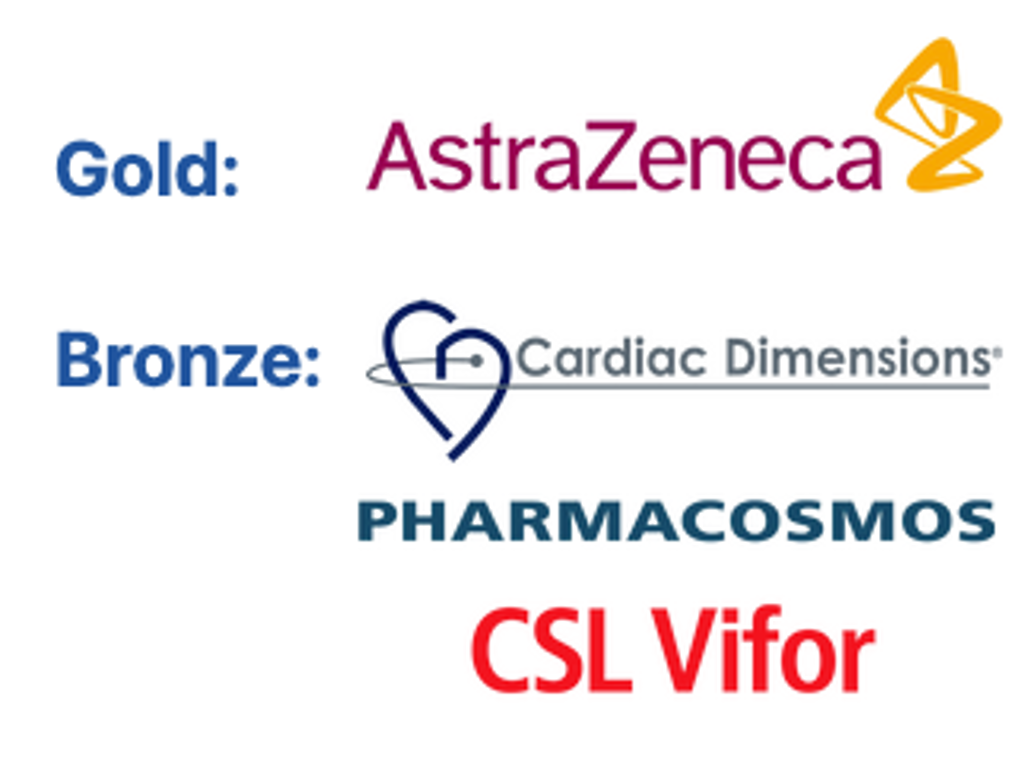
Learning Objectives
- Review the burden of heart failure with reduced ejection fraction (HFrEF) and heart failure with preserved ejection fraction (HFpEF) as one of the leading causes of disability and mortality worldwide
- Understand the latest guideline recommendations and discuss their applicability according to patients phenotypes
- Discuss the implementation in clinical practice of the four foundational therapies and additional drugs and devices to improve patient outcomes
- Develop a comprehensive understanding of best practices for the screening, diagnosis and management of the patient with heart failure and comorbidities
- Translate the findings of recent studies and guidelines into optimal patient management
Target Audience
- Heart Failure Specialists
- General Cardiologists
- General Practitioners (GPs)
- Nurses, Pharmacists, and other Allied Healthcare Professionals
More from this programme
Part 1
Day One
Part 2
Day Two
Faculty Biographies
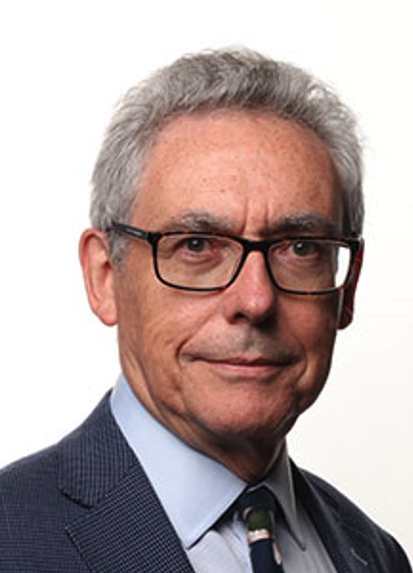
John GF Cleland
Professor of Cardiology
Prof John Cleland is a Professor of Cardiology at University of Glasgow, Glasgow, UK.
In 1977, he qualified from the University of Glasgow, completed training at St. Mary's & Hammersmith Hospitals (London) and was awarded a Senior Fellowship by the British Heart Foundation.
His main interests include heart failure, extending from epidemiology & prevention, to Phase II-IV trials and guidelines.
He founded the European Journal of Heart Failure and is Past-Chair of the ESC Working Group on heart failure and British Society for Heart Failure.
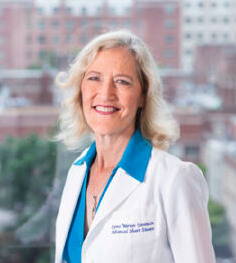
Lynne W Stevenson
Professor of Medicine and Director of Cardiomyopathy Program
Dr Lynne Stevenson is a Professor of Medicine and Director of Cardiomyopathy Program at Vanderbilt University Medical Center, Nashville, US.
Her research experience includes acute and ambulatory hemodynamic monitoring, exercise physiology, heart failure hospitalisations and the interface of arrhythmias and sudden death risk with left ventricular dysfunction.
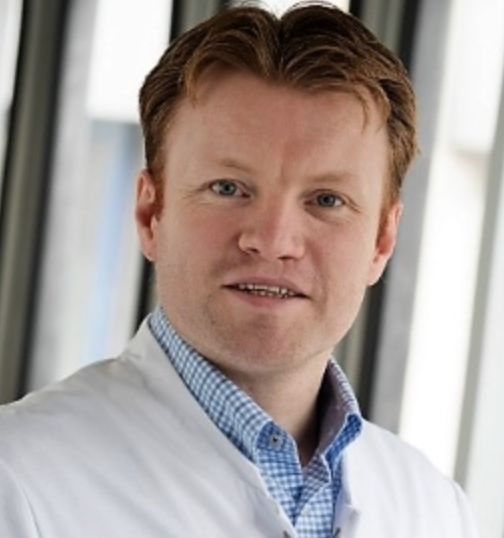
Jasper J Brugts
Heart Failure Cardiologist
Dr Jasper J Brugts is a Heart Failure Cardiologist at Erasmus University Medical Centre, Rotterdam, NL.
He is also a clinical epidemiologist and clinical trialist.
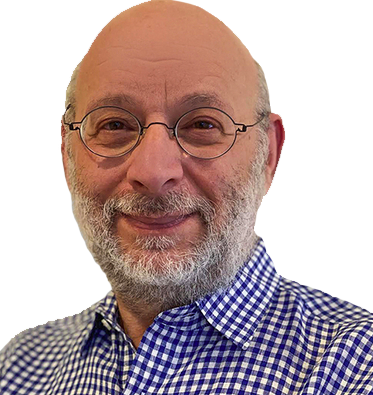
Dan Burkhoff
Director
Dr Dan Burkhoff is currently the Director of Heart Failure, Hemodynamics and MCS Research at Cardiovascular Research Foundation, New York, US. Dr Burkhoff's interest include cardiovascular modeling and ventricular mechanics, cardiovascular monitoring, heart failure, device and pharmacologic treatments for heart failure, including left ventricular assist devices. He is also author of Harvi, an interactive simulation-based application for teaching and researching on ventricular mechanics and hemodynamics.






Comments